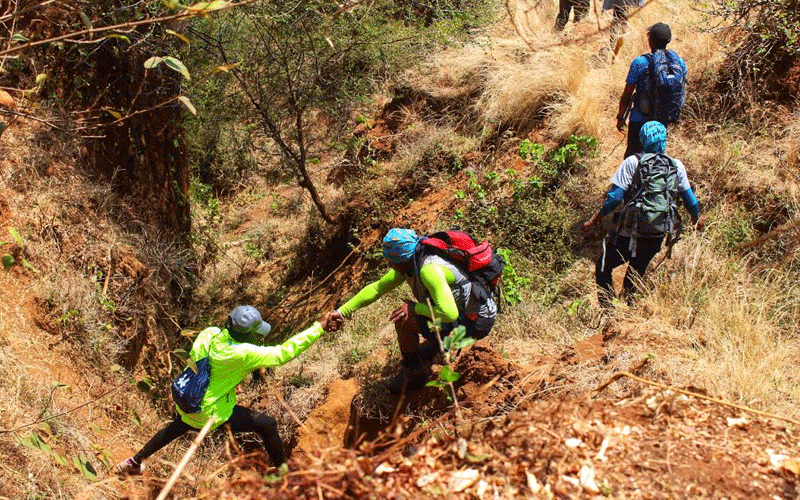
A group of hikers, primarily from western Kenya, successfully scaled Manga Hills on the border of Kisii and Nyamira counties in a heartfelt tribute to the late mountaineer Joshua Cheruiyot Kirui, who recently passed away while climbing Mount Everest.
The climbers, known as the “Hike Masters” and coming from various professional fields, stated that they participate in hiking to boost their physical and mental well-being.
“Standing atop Manga Hills, we are here for a commemorative hike dedicated to our friend and colleague Cheruiyot. He tragically passed away while striving to achieve his dream of summiting Mt. Everest without the aid of supplemental oxygen,” the group explained.
Hike Masters, a group of 163 members, continually attracts new participants with each hike, all united by a shared enthusiasm for outdoor adventures and a deep appreciation for nature.
“We are a community passionate about outdoor activities to maintain physical fitness and mental sharpness. We advertise each event, attracting new members. Our adventures allow us to have fun, travel, and appreciate the beauty of nature.”
They said they had decided to mourn their colleague Cheruiyot because they were hiking enthusiasts just like he was and added, “May his soul rest in peace.”
Cheruiyot, aged 40, tragically collapsed a mere 48 meters from the summit of the world’s highest peak, which stands at 8,849 meters. He was accompanied by Nepalese guide Nawang Sherpa, who is also reported missing.
Mount Everest, often known as the “death zone,” towers above 8,000 meters (26,247) and spans across Nepal and Tibet in Asia.
It serves as the final resting place for climbers who meet their demise on its unforgiving slopes.
According to a publication by the Ultimate Kilimanjaro, mountaineers tacking mouth Everest comfort extreme cold, perilously low levels of oxygen, and inhospitable conditions, making the ascent a harrowing and potentially dead endeavor.
The Ultimate Kilimanjaro underscores the challenges of recovering bodies on Everest due to extreme conditions.
Moving frozen bodies, some over 300 pound, is deemed impractical and risky. Helicopters can aid recovery but limited to Camp 2 due to high air density.
High costs and technical demands often prevent families from retrieval.

